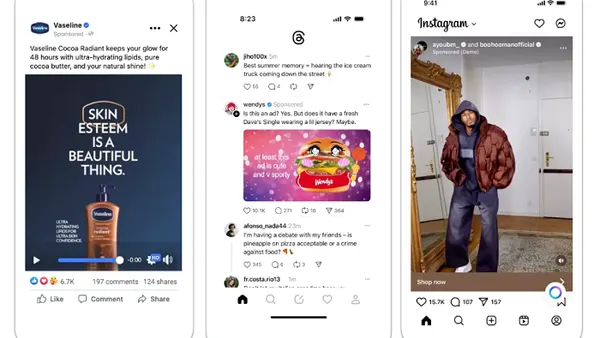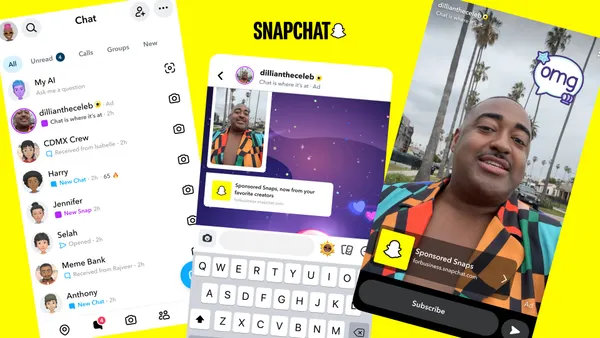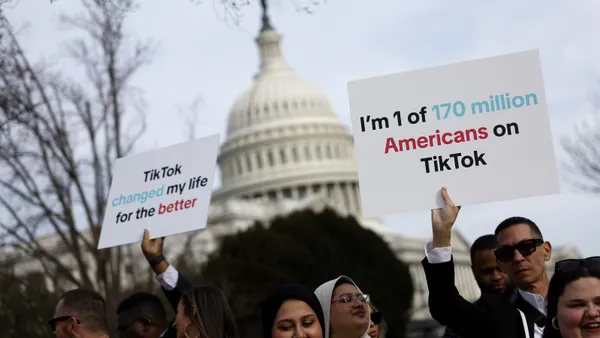Brief:
- Estée Lauder, the cosmetics brand with $11.3 billion in yearly sales, unveiled a lipstick-advising chatbot for Facebook Messenger, according to a press release. The bot lets customers search the company's assortment of lip shades and try them on with an augmented reality (AR) selfie before making a purchase.
- Users can take a quiz to get personalized shade recommendations based on their color and finish preferences, as well as use a search-by-color tool to find new lipsticks by taking a photo of any object.
- ModiFace, a developer of automatic face analysis software that's used by more than 200 web and mobile apps, provides the AR capability. Modiface's technology is also used by beauty brands like Sephora, Allergan, L'Oréal, Unilever and Coty.
Insight:
This news builds upon Estée Lauder's other recent efforts to leverage cutting-edge technology to engage with consumers. In May, it rolled out an improved mobile website using ModiFace's technology to let consumers virtually try on makeup. The cosmetics maker in April launched a chatbot-aided campaign on Facebook Messenger to guide customers in finding the right shade of the brand's Double Wear Foundation line.
AR is taking off among beauty brands that see the potential in unique mobile features, especially with younger consumers who like to share their makeup and clothing styles on social media, and Estée Lauder is the latest brand to take to Facebook Messenger armed with a helpful chatbot. Brands are sorting through how best to present themselves to users on the platform and drive sales or foot traffic to stores. The beauty industry has hopped onto Facebook Messenger to chase millennials, many of whom have abandoned brick-and-mortar retailers and turned to digital resources for beauty advice. Estée Lauder is beefing up its mobile presence as consumers spend more time online engaging with influencers and makeup tutorials on Instagram, Snapchat and YouTube.
Brands may consider Facebook Messenger an advantageous platform to learn about customers and how they respond to marketing in a messaging environment. But Facebook Messenger chatbots have their limitations for both brands and users. A State of the Chatbots report by Forrester revealed AI-driven chatbots aren't very effective and often cause frustration among users, as they can't replicate the complexities of human conversations — at least not yet.
Cosmetics marketers are seeing major upheaval partially due to the sweeping success of stores like Sephora, which lets people sample a wide range of products before buying, oftentimes using digital tools and face scans to match skin tones to products. Other brands like L'Oréal and Meitu recently launched virtual makeup apps, so it's not a stretch to expect that most fashion and cosmetics brands will eventually incorporate AR into their mobile capabilities to help people shop for beauty products online. However, such tools can be resource-intensive to develop, which is why brands like Estée Lauder are partnering with platforms like ModiFace for its technology and expertise.











